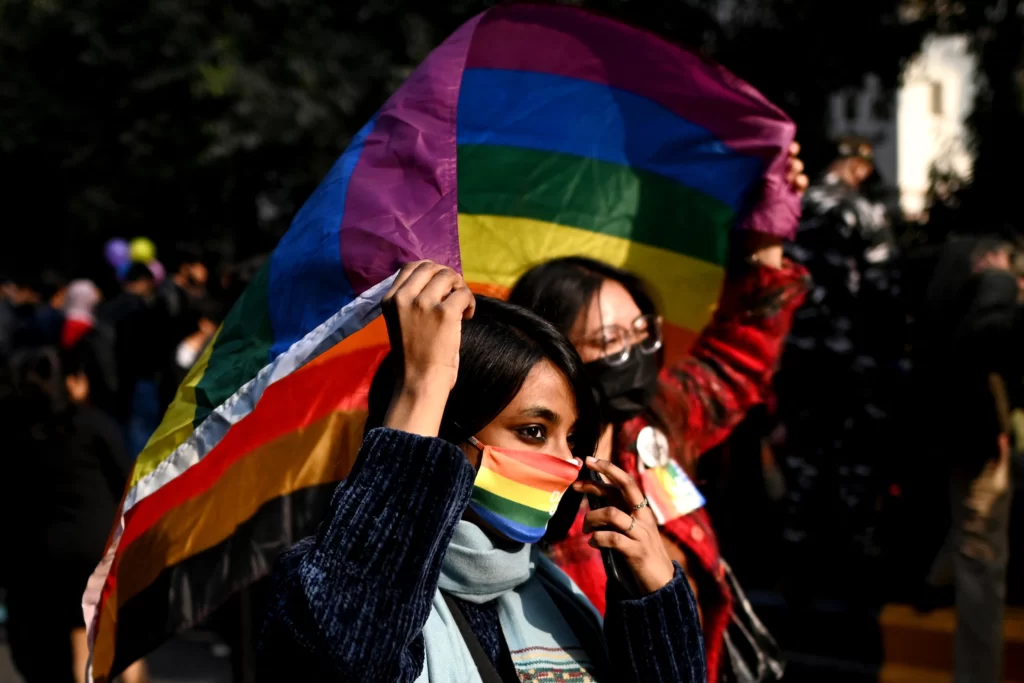
Same-sex marriage, also known as gay marriage, is a controversial topic that has been widely debated around the world. The issue revolves around whether or not same-sex couples should be granted the same legal rights and protections as opposite-sex couples.
In many countries, same-sex marriage has been legalized, while in others, it remains illegal. The debate over whether or not to legalize same-sex marriage often centers on religious beliefs, social norms, and legal considerations.
Proponents of same-sex marriage argue that denying same-sex couples the right to marry is a form of discrimination and violates their human rights. They also argue that legalizing same-sex marriage will promote equality and help reduce discrimination against the LGBTQ+ community.
Opponents of same-sex marriage often argue that marriage should be limited to opposite-sex couples for religious or moral reasons. They also argue that legalizing same-sex marriage could undermine traditional family values and lead to negative consequences for children.
Ultimately, whether or not same-sex marriage should be legalized is a matter of personal opinion and political debate. Many countries around the world have already legalized same-sex marriage, and the trend towards greater acceptance and recognition of LGBTQ+ rights continues to grow.
Same-Sex marriage and India
Section 377 of the Indian Penal Code was a colonial-era law that criminalized homosexuality in India. It was used to justify the persecution and discrimination of LGBTQ+ individuals, and it imposed harsh penalties on those who engaged in homosexual activities.
However, on September 6, 2018, a five-judge bench of the Indian Supreme Court unanimously declared that Section 377 was unconstitutional to the extent that it criminalized same-sex relationships between consenting adults. This was a landmark decision that decriminalized homosexuality in India and recognized the human rights of LGBTQ+ individuals.
The Supreme Court’s decision to strike down Section 377 was based on the principles of equality, non-discrimination, and the protection of individual freedom and dignity. The court recognized that LGBTQ+ individuals have the right to live their lives with dignity and without fear of persecution or discrimination.
The decriminalization of homosexuality in India was a significant step towards achieving greater equality and recognition for the LGBTQ+ community. However, it should be noted that while same-sex relationships are no longer criminalized, discrimination and stigma against LGBTQ+ individuals still exist in Indian society. The fight for full equality and recognition for the LGBTQ+ community in India continues.
CONCLUSION
In conclusion, the issue of same-sex marriage and LGBTQ+ rights is a complex and contentious one that has been widely debated around the world. While same-sex marriage has been legalized in many countries, it remains illegal in others, and there is ongoing debate about whether or not to legalize it.
In India, the decriminalization of homosexuality in 2018 was a significant step towards achieving greater equality and recognition for the LGBTQ+ community. However, same-sex marriage is still not legal in India, and there is ongoing debate about whether or not to legalize it.
Ultimately, the issue of same-sex marriage and LGBTQ+ rights is a matter of personal opinion and political debate. The trend towards greater acceptance and recognition of LGBTQ+ rights continues to grow around the world, but there is still much work to be done to achieve full equality and recognition for the LGBTQ+ community.
Ultimately, the issue of same-sex marriage and LGBTQ+ rights is a matter of personal opinion and political debate.
